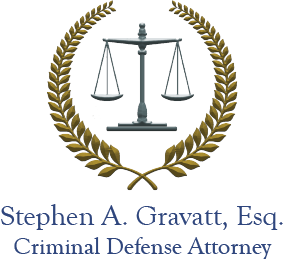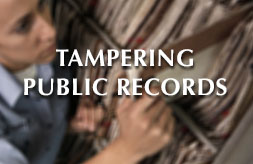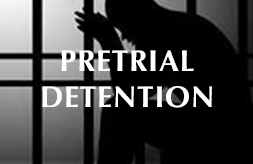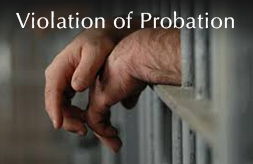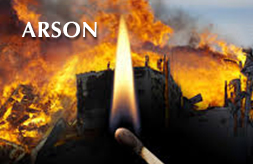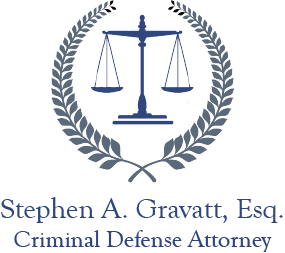
Stephen A. Gravatt, Esq
Attorney
565 NJ 35
Middletown, New Jersey 07748
(732)-337-7922
Email: pipking@comcast.net
Criminal defense attorney defends persons charged with OBSTRUCTION OF THE ADMINISTRATION OF LAW OR OTHER GOVERNMENTAL FUNCTION—2C:29-1
WHAT CONDUCT CONSTITUTES OBSTRUCTION OF THE ADMINISTRATION OF LAW?
N.J.S.A. 2C:29-1 provides as follows: (a) A person commits an offense if he purposely obstructs, impairs or perverts the administration of law or other governmental function or prevents or attempts to prevent a public servant from lawfully performing an official function by means of flight, intimidation, force, violence, or physical interference or obstacle, or by means of any independently unlawful act. This section does not apply to failure to perform a legal duty other than an official duty, or any other means of avoiding compliance with law without affirmative interference with governmental functions. (b) An offense under this section is a crime of the fourth degree if the actor obstructs the detection or investigation of a crime or the prosecution of a person for a crime, otherwise it is a disorderly persons offense.
In the case of State v. Berlow, 284 N.J. Super 356, 360-361, 665 A.2d 404 (Law Div. 1995), just such a series of events took place. In holding that defendant would have committed the crime of obstructing had the police obtained a search warrant, the Superior Court, Law Division held that “…the act of slamming and locking a door in the faces of police officers expressing an urgent need to enter is an affirmative act of physical interference…defendant acted purposely with respect to closing and locking the door thereby preventing police entry, knowing that in doing so, he was preventing the police from accomplishing their stated purpose.”
*Note that it is illegal to engage in flight, intimidation, force, violence, physical interference, obstacle, or any independently unlawful act to attempt to prevent a public official (usually a police officer) from performing an official function (usually an investigation, asearch, arrest, etc…) Examples include: Failure to show drivers license, insurance identification card and registration to police officer when asked to do so on routine traffic stop constitutes obstructing. State v. Perlstein, 206 N.J. Super 246, 502 A.2d 81 (App. Div. 1985). Abusive language with simultaneous physically aggressive posturing constitutes obstructing. State v. Wanczyk, 201 N.J. Super 258, 262-263, 493 A.2d 6 (App. Div. 1985). Fleeing from an investigatory detention, even though later found to be unconstitutional, still constitutes obstructing. State v. Crawley, 90 N.J. 241, 447 A.2d 565 (1982).
However, refusal to give trooper name, date of birth and social security number when asked to do so for the purpose of filling out and incident report held to not constitute obstructing. State v. Camillo, A-2189-04T32189-04T3.
As a criminal defense attorney of 30 plus years, the usual manner in which this offense is committed is a deliberate act with design to prevent a police officer from investigating a crime. A good example would be eating one’s drugs when one knows a police officer suspects one of possession of CDS. If no drugs can be detected and seized no charge for possession of CDS can issue. But the act of preventing detection and seizure could be obstruction.
WHAT IS MY EXPOSURE IF CONVICTED OF OBSTRUCTION?
If the criminal conduct one is seeking to protect is a felony, the charge can be a fourth degree crime. A fourth degree crime is punishable, if convicted, by a monetary fine of up to $10,000.00, plus possible jail time of a minimum of one year and a maximum of eighteen months, plus a criminal record. N.J.S.A. 2C:43-3(a).
If the underlying offense is a disorderly persons offense, then obstruction can be charged as a criminal disorderly persons offense. A disorderly persons offense is punishable, if convicted, by monetary fine of up to $1,000.00, plus possible jail time of up to six months, plus a criminal record. N.J.S.A. 2C: 43-8.
DO I NEED TO RETAIN AN ATTORNEY TO DEFEND ME IF CHARGED WITH OBSTRUCTION?
Yes.I would recommend it. Money is fungible. Criminal record is not. A 2C conviction can make you ineligible to keep or obtain employment withthe government and preclude you from obtaining licensure with some professional boards.
In my 30 years of practicing Law I have helped many hundreds of people avoid conviction, even obtain acquittal where the facts supported it.
Contact me for a free initial consultation and a no nonsense consultation about how I can help you if retained.
Stephen A. Gravatt, Esq.
(732)-337-7922
www.njdwicriminaldefenseattorney.com
